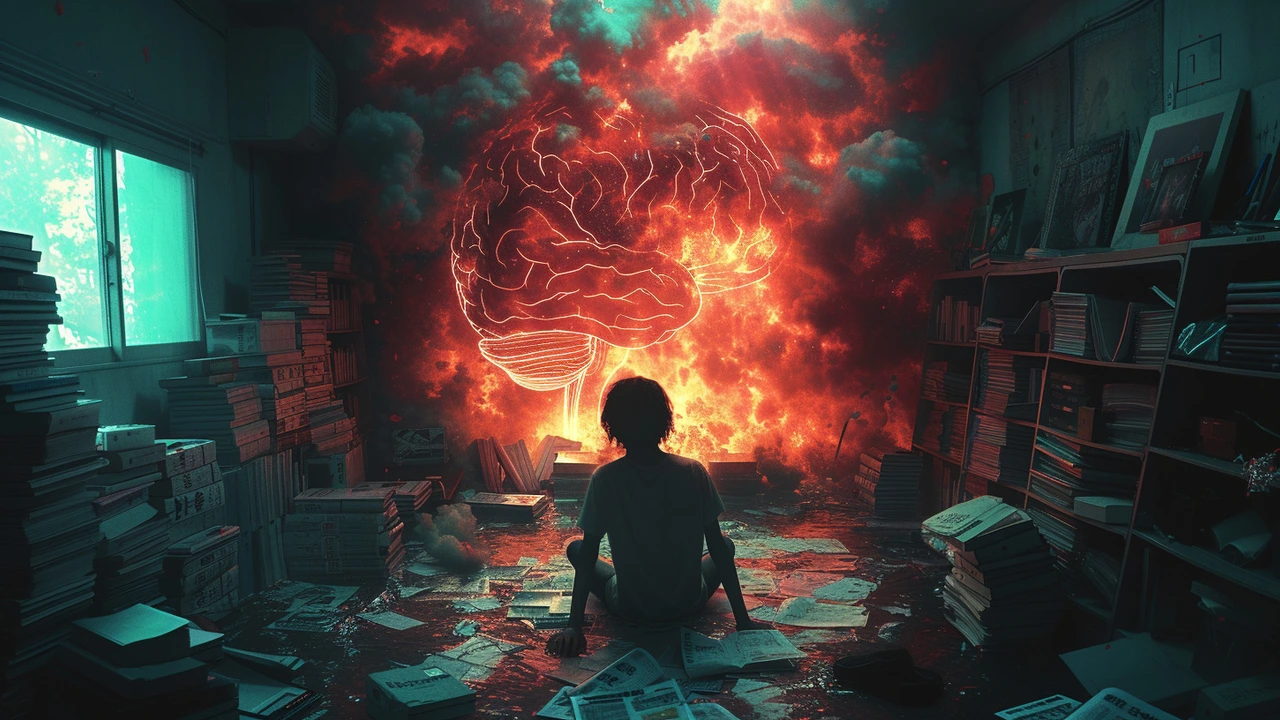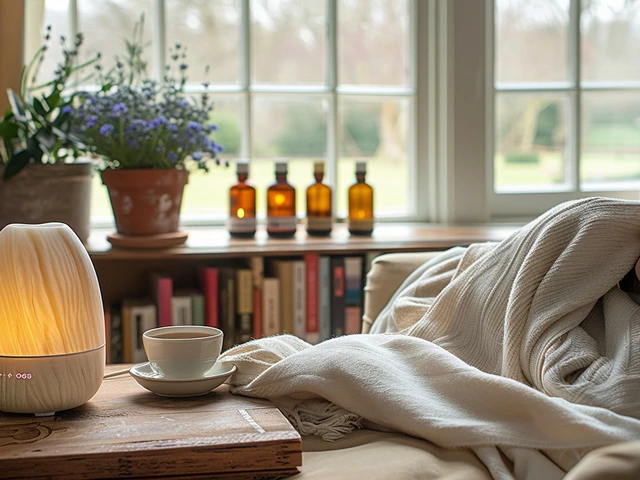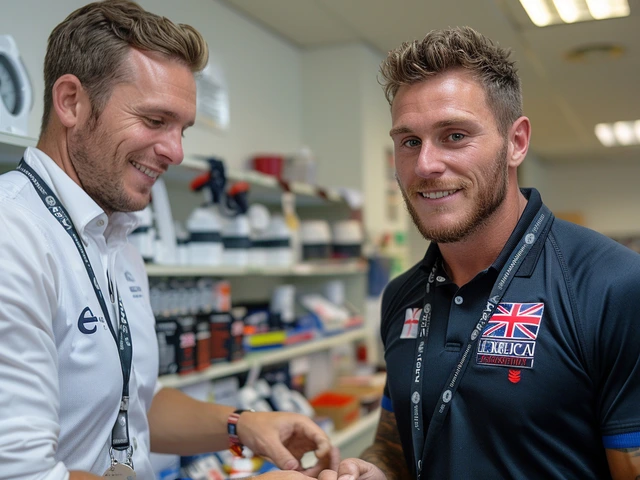At the Crossroads of Stigma and Support
It’s funny how society stigmatizes mental health. Yet, here we are, bravely acknowledging that our emotional well-being is as essential as our physical health. It wasn't so long ago that I too was reluctant to do so. Instead of seeking professional help, I hid my struggles. If I can be honest, some days, I would feel like I was hanging by a mere thread. The dark cloud of indescribable fear, anxiety, and depression incessantly lingered over me like a persistent rain cloud.
But you know what? I discovered, technology — a domain we frequently associate with stress and mental exhaustion, could in fact be a useful tool in addressing mental health issues. Quite the plot twist, wouldn't you say? So, let's jump into this rabbit hole together and unravel the intricate weave of mental health and technology. With 20/20 hindsight (I assure you, the humour in that statement has not escaped me), my only regret is not realising this sooner.
Therapy At Your Fingertips
In a world where there is an app for almost anything, it was only a matter of time before tech conquered the realm of mental health. Do you remember when having a pocket-sized tech assistant was nothing short of a sci-fi fantasy? Well, now apps like "Calm" and "Headspace" have made both therapy and mindfulness training available just a click away for anyone with a smartphone. These nifty platforms are especially handy for those reluctant to seek in-person therapy due to the associated stigma or logistical challenges.
And for a more personalized approach? We have 'TalkSpace' and 'BetterHelp,' providing access to licensed therapists via video call, text, or voice. It's basically like having a therapist on speed dial. Imagine being able to talk to a professional right at the moment you're having a panic attack or feeling low. That's the true power of technology that blows me away!
The Rise of AI and Chatbots
AI technology has come a long way from controlling our playlists to psychological assistance. Surprised? I certainly was. AI-based apps like 'Woebot' use cognitive-behavioral therapy (CBT) principles to interact with users. It's like having an always-available, judgment-free, and memory-like-a-supercomputer friend, guiding you towards healthier thought processes. A fun fact: ‘Woebot’ was designed by psychologists from Stanford University. Which probably makes it smarter than me, which is both awe-inspiring and slightly terrifying.
I recall a night like any other night, laying on my couch, restless and anxious. I installed 'Woebot,' hoping for some relief. As the messages started flowing back and forth, I remember thinking, 'It's weird how I can spill my innermost insecurities and fears to this machine that doesn't have any judgment.' It was a peculiar, unexpected comfort.
Mindfulness Through Technology
As contradictory as it may sound, technology has given us a wide array of wonderful mindfulness apps to keep us grounded. There's 'Insight Timer' with thousands of guided mindfulness meditations, 'Aura' offering personalized meditations, life coaching, stories, and music. 'Calm' is another favourite with its soothing bedtime stories (Stephen Fry’s narrations are a blessing, let me assure you).
From personal sleep stories to underwater meditation, there's something for everyone. My personal go-to is the settling British countryside tales, the recital of lavender fields, old stone cottages and thatched roof pubs do have a soothing effect after a long day at work. No matter how disgruntled I feel, it lulls me into tranquility, a pleasant refuge indeed.
The Boom of Online Self-Help Material
The digital era has also ushered in an explosion of self-help material - online, accessible, and often free. From podcasts with mental health experts dissecting different conditions and treatments to YouTube channels hosting meditative music and guided relaxation, one can find almost any category of self-help material.
YouTube channels like 'Goodful' also share practical self-care tips, like gardening or cooking healthy recipes. Watching bonsai pruning techniques or gumbo cooking can be incredibly stabilizing amidst the whirlwind of anxiety. Yes, relaxing can look like binge-watching 'Tasty' videos while eating a bowl of homemade vegetable soup. Don’t judge me now.
Social Connection in the Age of Isolation
Remember the time when having a long face-to-face conversation appeared to soothe our worries better than anything else? Seems like a distant memory in this lockdown era. But the emergence of Zoom, Skype, and other video conferencing apps have helped keep face-to-face socialisation alive, albeit virtually. This connection within the virtual space has become a valuable tool in our collective struggle with isolation and pandemic anxiety.
One standout experience on a Zoom call that warms my heart every time, was meeting an old mate after a decade. We shared laughs, updated each other on our lives, and signed off with joy-filled hearts, a memory that starkly contrasts with the rather dark year that was 2020. And isn't this what life is about? Finding small, warm spots of human connection, even in dark corners?
Monitoring Mental Health via Wearables
If you thought fitness trackers only tracked steps and heart rates, think again! The health tech industry has progressed leaps and bounds, now offering wearable devices to monitor your emotional well-being. Apple Watch and Fitbit offer features to track daily stress levels and suggest mindfulness practices.
One particular night when my heart was pounding unreasonably, and I felt utterly out of sorts, my Apple Watch quietly pinged, suggesting I take a minute to focus on my breath. The simple act of pausing to breathe deeply helped me gather myself, offering me steadiness amidst the turmoil. It never ceases to amaze me how well technology can aid us during crucial moments.
The Cyber Bulwark: Digital Security and Privacy
Remember, while technology is a powerful tool in managing mental health, it does come with its challenges, particularly privacy and data security. Before diving headfirst into any therapeutic or mindfulness app, it’s important to ensure they adhere to the necessary data protection measures. Use secure Wi-Fi networks for video consultations, be mindful of the permissions you grant to apps, and routinely review their privacy policies.
Just because we are sitting behind screens, doesn't mean we should let our guard down. In the realm of cybersecurity, complacency could be as damaging as it would be for our mental health. It’s like keeping our homes safely locked while we are away. In the same regard, we should keep our digital doors secured. Forewarned is forearmed, my friend.
In a nutshell, let's make technology our ally in the ongoing battle towards better mental health. Not denying its pitfalls and distractions, but appreciating it as a tool to learn, grow and mentally heal. It's somewhat ironic, how devices criticized for isolating us, often provide us with the connections and resources we need to maintain our mental health. There is beauty in that irony, I daresay!






Write a comment: